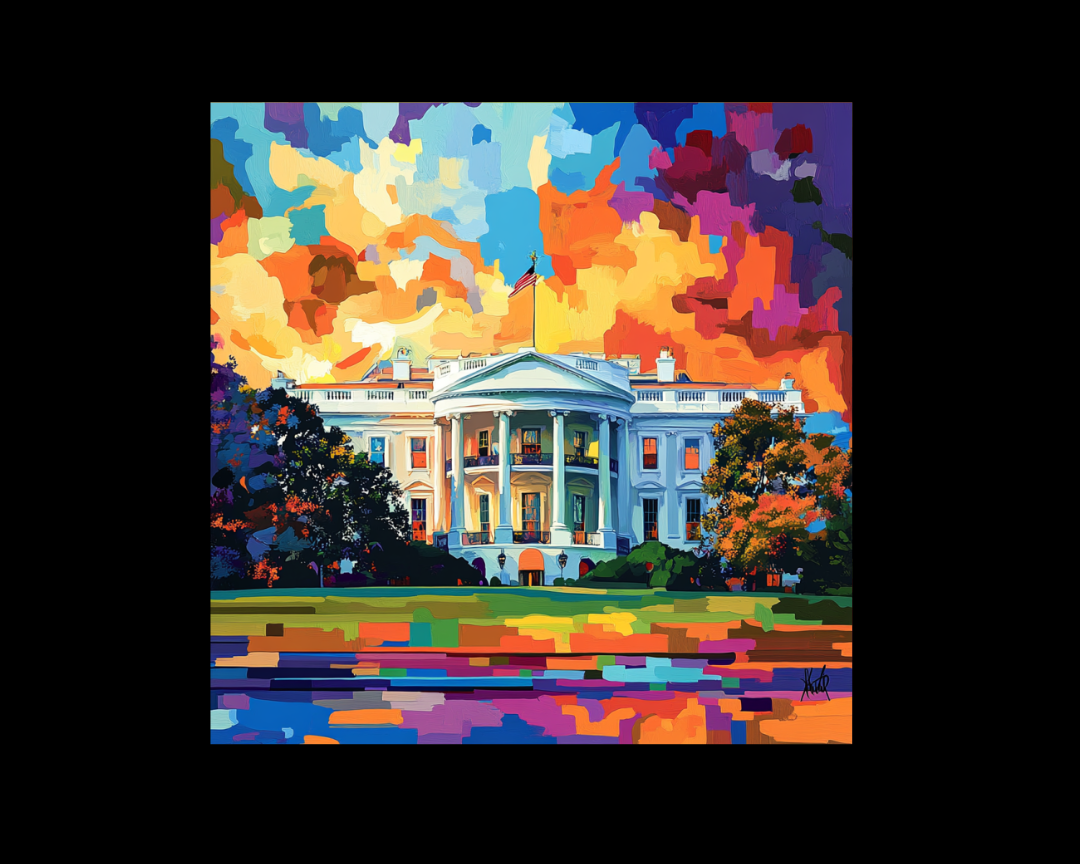5 min read
White House Makes AI Literacy a National Priority
In a move that would have seemed like science fiction just five years ago, AI literacy is now official White House policy. President Trump's April...
2 min read
 Writing Team
:
Apr 7, 2025 11:01:14 AM
Writing Team
:
Apr 7, 2025 11:01:14 AM

The tech sector is reeling as uncertainty over President Donald Trump’s latest tariff policy throws the future of AI development into question. At the center of the storm are GPUs—the critical chips that power everything from deep learning models to massive cloud infrastructure. As of now, no one knows for sure if GPUs will be exempt from the sweeping tariffs, and that ambiguity is rattling markets and AI labs alike.
Since the tariffs were announced, the so-called “Magnificent Seven”—including Amazon, Google, Microsoft, and Nvidia—have lost over $1 trillion in market capitalization. Nvidia alone is down 7.59%, and Taiwan Semiconductor Manufacturing Company (TSMC) has dropped 7.22%.
At the core of the issue is whether the tariffs apply to just semiconductor chips, or to entire systems that include GPUs, like AI servers commonly imported from Taiwan. Trump’s administration outlined an exception for semiconductor components, but stopped short of clarifying the status of finished electronics, which are most relevant to AI developers.
According to historian Chris Miller, author of Chip War, most AI-focused GPUs are “imported not as chips but as servers,” and would thus likely face the 32% Taiwan tariff set to go into effect April 9.
Tech insiders in San Francisco are cautiously optimistic about a possible exemption, referencing Trump’s prior carve-outs for Apple. But Washington-based lobbyists aren’t so sure, citing the administration’s unpredictable policy-making and well-known tensions with the tech industry.
“Everyone’s asking for clarity,” said a lobbyist from a major tech company. “So far, folks are saying that they think we’re okay, but not sure yet.”
Attempts to get official clarification have led nowhere. A spokesperson at NIST, the agency managing the $50 billion CHIPS Act, directed inquiries to the White House. The U.S. Trade Representative, responsible for overseeing the tariff program, has yet to issue a statement.
The lack of communication has made it nearly impossible for companies to plan, further heightening market anxiety.
Major cloud providers like Amazon, Google, and Microsoft are heavily invested in GPU infrastructure, which underpins their AI platforms and cloud services. Any sustained increase in GPU costs could ripple across the entire tech economy.
Adding to the concern is the fragile dynamic between tech leaders and the Trump administration. While companies like OpenAI recently partnered with the White House on the $500 billion Stargate datacenter initiative, there’s little guarantee that goodwill will translate into tariff exemptions.
Nvidia has reportedly started shifting GPU production to the U.S. In December, Reuters reported that Nvidia planned to manufacture its Blackwell AI chips at TSMC’s Arizona facility. CEO Jensen Huang stated the company could “shift things around” if needed, with U.S. manufacturing helping to buffer the impact over time.
But most AI labs and cloud providers don’t have that flexibility. Building new domestic supply chains from scratch would be expensive, slow, and complicated by the U.S.’s current dependence on imported raw materials. Making matters worse, China just announced new export restrictions on rare earth minerals—of which the U.S. imports 90%—posing yet another threat to electronics manufacturing.
“If the tariffs are unchanged,” Miller warned, “we should prepare for a significant increase in the price of electronics.”
In an industry driven by innovation and data, political loyalty might be the new key to survival. Jeff Bezos and Sundar Pichai, both of whom appeared at Trump’s inauguration, may find their companies better positioned than others like Anthropic, which depends on Amazon and Google for compute. But those relationships are precarious, especially given the influence of media owned by the same figures—like The Washington Post.
With second-order effects looming, including the risk of a broader recession triggered by retaliatory trade policies, AI firms are bracing for impact.
According to journalist Kara Swisher, a group of top tech executives is headed to Mar-a-Lago in the hopes of negotiating tariff exemptions directly with the President.
Until there is clarity, the AI industry remains in limbo, caught between the gears of geopolitics and an increasingly volatile supply chain.

5 min read
In a move that would have seemed like science fiction just five years ago, AI literacy is now official White House policy. President Trump's April...

Discord just dropped the mic on its ad-free reputation faster than a rage-quitting gamer leaves a losing match. The platform that built its identity...
-3.png)
Economies of scale represent a fundamental concept in business economics that has profound implications for marketing strategy. This principle...